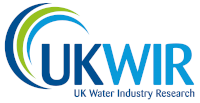What process options are available for treatment of hazardous chemicals at point of entry to sewer?
03/09/2025
Recent media coverage across the UK has highlighted the pervasive nature of chemical pollution in our waterways. News outlets like The Guardian and BBC News have reported significant traces of "forever chemicals" (PFAS), pharmaceuticals, pesticides, and other industrial compounds in both waste and drinking water – underscoring the need to eliminate or tightly regulate their introduction into water bodies.
Currently, an estimated 150,000 substances are in commercial use today, a figure projected to double by 2030. Many of these emerging substances are not easily removed by conventional wastewater treatment methods, posing long-term risks to aquatic life, biodiversity, and potentially human health. The complexity and sheer volume of these substances make end-of-pipe solutions increasingly unsustainable and economically unviable.
This UKWIR project provides a detailed analysis of available technologies and solutions for removing hazardous chemicals from various sources, be it industrial discharge, commercial waste, road runoff, or small-scale domestic contributions. The findings highlight that there are already technologies available to remove hazardous substances at point of entry to sewers, with a proven impact on reducing these chemicals downstream.
However, the core principle guiding this research is prevention. Tackling pollution at its origin, before it enters the water environment, is by far the most effective and sustainable strategy.
The programme lead was Mark Craig, Severn Trent Water, with Southern Water’s Adela Martin as co-programme lead, and UKWIR’s project manager was Nina Jones.
The research found that there is no ‘one- size –fits- all’ solution, and as our knowledge of hazardous chemicals increases, the need for additional treatment of the point of entry to sewers will be essential as part of the interventions required to protect the environment.
A collaborative effort involving manufacturers, regulators, water companies, and consumers is essential to achieving this. Designing out pollution, encouraging responsible chemical management, and promoting cleaner practices throughout the supply chain will be critical. This proactive stance is a necessity in the face of an ever-increasing chemical landscape.
The project argues that by investing in research and implementing strategies that prioritise control at source, the UK water industry can move towards a more resilient and sustainable future, safeguarding our environment and public health for generations to come.
To read the full UKWIR report please follow this link
Isle Utilities was the contractor for this project. The Project Steering Group was comprised of representatives from all 18 UK & Irish water companies.
